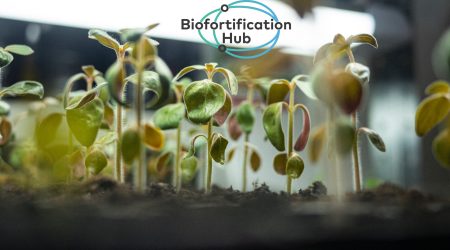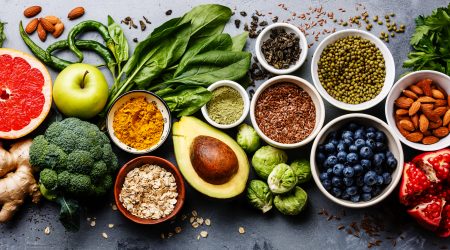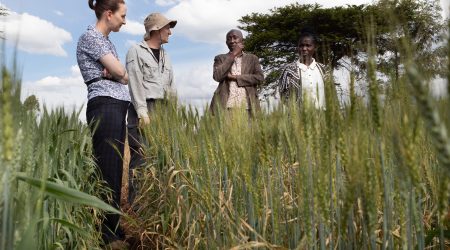Creating a baby-leaf kale resistant to downy mildew

Downy mildew in baby leaf kale, could be a thing of the past, thanks to a recent collaboration between industry and science.
The project saw the John Innes Centre and CN Seeds, a company specialising in the breeding, production and marketing of baby leaf salads and herbs, collaborate to develop a variety of baby leaf kale that is displaying increased resistance to the damaging disease, downy mildew.
“Baby leaf” describes the optimum growth stage of leafy vegetables when cut as individual leaves for salads. Many of us will have encountered baby leaf vegetables in salads, particularly recently as the popularity of bagged salads has skyrocketed.
The growing demand for baby leaf vegetables marks a rising trend for smaller sized food products, in part understood as convenience – less chopping, easier and quicker to eat – but also because they have an aesthetic appeal, baby veg is “cute” and seemingly, even more delicious.
Considered a superfood, many of us will have seen baby leaf kale in supermarket salad bags. It is a smaller leafed variety of kale used in salads and smoothies for example.
Unfortunately, growing baby leaf vegetables comes with its challenges, as CN Seeds discovered with baby leaf kale. One of these is that growers only have a limited period of time when they can use pesticides to keep the plants from being eaten by insects. The smaller leaf size results in a greater surface area to pesticide which limits the effectiveness of the pesticide.
To overcome the problem of pests, the baby leaf kale is grown under protective nets. However, while this offers the baby kale plants protection from pests, this method creates favourable conditions for the disease downy mildew to flourish. Downy mildew is the number one disease affecting baby leaf kale. It infects the plant in damp conditions and destroys the valuable leaf tissue so it can’t be harvested for us to eat.
CN Seeds contacted the John Innes Centre, for our help in combating this issue. Following initial discussions with Knowledge Exchange and Commercialisation manager Dr Jonathan Clarke, CN Seeds were put in touch with Dr Chris Ridout.
Dr Ridout hosted CN Seeds plant breeder Sujit Tha in his laboratory and was able to share techniques for screening varieties of baby leaf kale to find the one most resistant to the downy mildew disease.
The collaborative project was able to screen a diverse range baby leaf kale from across the country and, using the screening techniques, was able to identify a few varieties most resistant.
These varieties can then be bred to create a variety of baby leaf kale that is resistant to the downy mildew disease. CN Seeds were then able to grow the new variety under protective netting, without the risk of downy mildew infection.
As a direct result of the project, CN Seeds have built a plant pathology lab at their headquarters to allow them to conduct their own screening.
The John Innes Centre is continuing collaborations, with a new PhD student position, whose work will further improve our understanding about mildew disease prevention, helping future crop growers to increase their yields without the need for pesticides.



